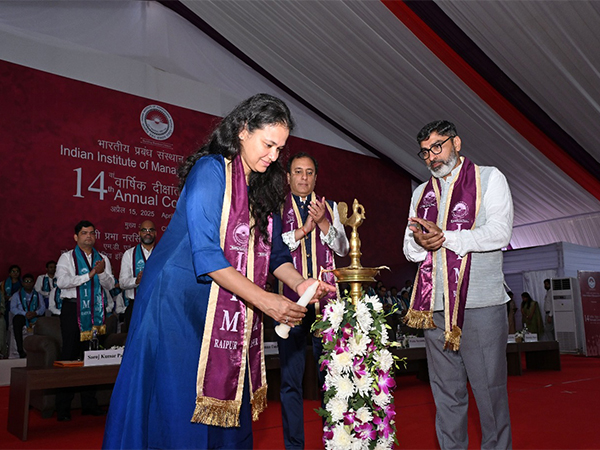Cabinet approves revised domestic gas pricing guidelines, domestic consumers to have stable pricing regime
Apr 06, 2023

New Delhi [India], April 7 : The Cabinet Committee on Economic Affairs on Thursday approved the revised domestic natural gas pricing guidelines for gas produced from nomination fields of Oil and Natural Gas Corporation (ONGC), Oil India Limited(OIL), New Exploration Licensing Policy (NELP) blocks and pre-NELP blocks, where production sharing contract provides for government's approval of prices.
Briefing the media after a meeting of union cabinet, Union Information and Broadcasting Minister Anurag Thakur said the price of such natural gas shall be 10 per cent of the monthly average of Indian Crude Basket and shall be notified on a monthly basis.
For the gas produced by ONGC and OIL from their nomination blocks, the Administered Price Mechanism (APM) price shall be subject to a floor and a ceiling. Gas produced from new wells or well interventions in the nomination fields of ONGC and OIL, would be allowed a premium of 20 per cent over the APM price.
The Cabinet Committee on Economic Affairs (CCEA) meeting was chaired by Prime Minister Narendra Modi.
The new guidelines are intended to ensure a stable pricing regime for domestic gas consumers while at the same time providing adequate protection to producers from adverse market fluctuation with incentives for enhancing production, the Minister said.
An official release said the government has targeted increasing the share of natural gas in the primary energy mix in India from the current 6.5 per cent to 15 per cent by 2030.
"The reforms shall help expand the consumption of natural gas and will contribute to the achievement of the target of emission reduction and net zero," the release said.
"These reforms are a continuation of the various initiatives taken by the government to protect the interests of consumers by reducing the impact of the increase in international gas prices on gas prices in India by significantly increasing the domestic gas allocation to the city gas distribution sector," it added.
The release said the reforms will lead to a significant decrease in prices of Piped Natural Gas (PNG) for households and Compressed Natural Gas (CNG) for transport, adding that the reduced prices shall also lower the fertilizer subsidy burden and help the domestic power sector.
With the provision of a floor in gas prices as well as provision for 20 per cent premium for new wells, this reform will incentivize ONGC and OIL to make additional long-term investments in the upstream sector leading to greater production of natural gas and consequent reduction in import dependence of fossil fuels, the release said.
"The revised pricing guidelines will also promote a lower carbon footprint through the growth of a gas-based economy."
At present, the domestic gas prices are determined as per the new Domestic Gas Pricing Guidelines, 2014 which were approved by the government in 2014.
The 2014 pricing guidelines provided for declaration for domestic gas prices for a 6-month period based on the volume-weighted prices prevailing at four gas trading hubs - Henry Hub, Albena, National Balancing Point (UK) and Russia for a period of 12 months and a time lag of a quarter.
As the earlier guidelines based on four gas hubs had a significant time lag and very high volatility, the need for this rationalization and reform was felt.
The revised guidelines make prices linked to crude, which is a practice now followed in most industry contracts, more relevant to our consumption basket and has deeper liquidity in global trading markets, on a real-time basis, the release said.
With the changes now approved, data of Indian Crude basket price from the previous month would form the basis for APM gas price determination, it added.

















